Africa
South Sudan Chief Spy Akol Koor Named Peace Spoiler In US
Published
3 years agoon
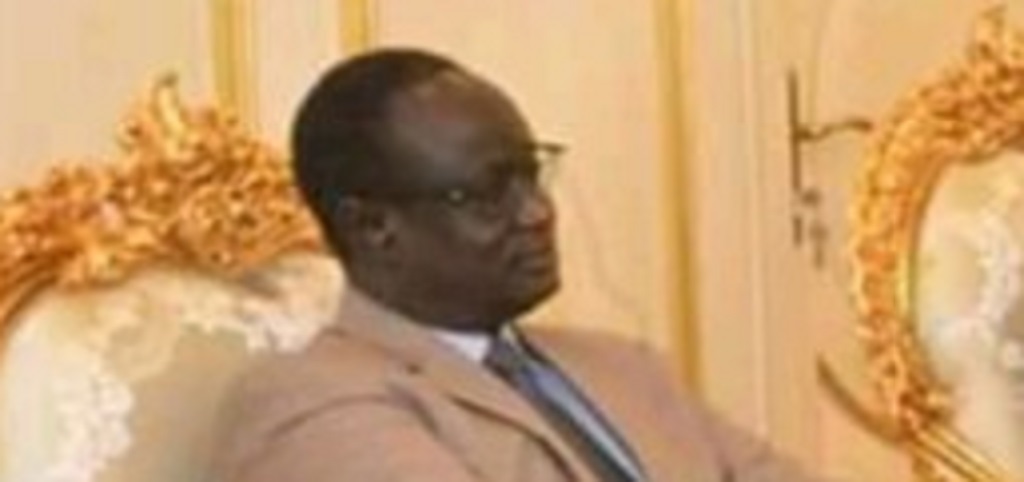
WASHINGTON –The United States should continue to hold individuals responsible for gross human rights violations and those thwarting the peace process accountable through the imposition of targeted sanctions, a South Sudanese activist said.
Addressing the Senate Committee on Foreign Relations in Washington on Wednesday, Peter Biar Ajak said such individuals should include the Director-General of the country’s National Security Service (NSS), General Akol Koor Kuc and his top cronies.
“The U.S. should also push the African Union to urgently set up the Hybrid Court on South Sudan to end the culture of impunity,” he said.
Biar, once detained by the country’s national security service, accused President Salva Kiir and First Vice President Riek Machar of imposing themselves on the people of South Sudan for too long.
“Despite the severe repression in the country, our people made this unequivocally clear in the recently concluded South Sudan National Dialogue, demanding that Kiir and Machar urgently find an exit route from the political scene,” he told the Committee.
The activist urged the U.S, working together with the African Union, the United Nations, and others must demand that Kiir holds election by March 2022 since “people can no longer endure his awful rule”.
Holding elections, the outspoken activist further explained, would require specific tasks to be completed such as the promulgation of a new constitution, the merger of various militias into a national army, the appointment of new Elections Commissioners, the conducting of the census, and the updating of the voter registry.
“However, given Kiir’s reluctance to implement the peace deal, it is unlikely that any of these enormous tasks would be accomplished on time,” he noted.
Meanwhile, the activist said the U.S needs to send a clear message to Kiir that his repression of South Sudan’s people will not be tolerated anymore and further delay of elections is unacceptable.
He further urged the UN Security Council to “explicitly” reject President Kiir’s move to postpone the elections, saying any decision of the nature must comply fully with the 2018 peace agreement.
“Failing to hold him [Kiir] accountable next week will enable Kiir to extend the tenure of his already illegitimate regime beyond what is specified in the Agreement,” stressed the activists.
He added, “This could very well spark large-scale violence with devastating consequences for our people and the Horn of Africa”.
Biar urged the U.S. to continue supporting civil society groups, church groups, community-based organizations, and women and youth coalitions working hard to build consensus among people.
Find below Peter Biar’s testimony below:
“THE STATE OF DEMOCRACY AROUND THE WORLD”
TESTIMONY OF PETER BIAR AJAK, PHD1
REAGAN-FASCELL DEMOCRACY FELLOW
NATIONAL ENDOWMENT FOR DEMOCRACY
BEFORE
THE SENATE COMMITTEE ON FOREIGN RELATIONS
MARCH 10, 2021
Chairman Menendez, Ranking Member Risch, and Members of the Committee:
I am greatly honored to testify today. This topic is close to my heart. For eighteen months, I endured a brutal, illegal detention at the notorious “Blue House” prison, operated by South Sudan’s National Security Service (NSS). My crime was criticizing President Salva Kiir and his failed leadership of South Sudan, which has turned the promise of our hard-won independence into a decade-long horror. I survived this imprisonment and Kiir’s later attempt to either kill or abduct me from Nairobi, Kenya because of the support of many defenders of human rights around the world, including several members of the U.S. Senate and the House of Representative (many of whom are seated on this Committee). I am extremely grateful to each and every one of you and the United States’ Government for speaking out for me when my voice was silenced, and for acting quickly to save my life and that of my family.
It is only natural that I begin my testimony with the stalled democratic transition in South Sudan. We gained our independence on July 9, 2011 after our people voted overwhelmingly for separation in a referendum made possible by the Comprehensive Peace Agreement of 2005, which the United States brokered. At independence, Kiir assumed the presidency by appointment, charged with building democratic institutions that would allow for national elections to be held in 2015. But in December 2013, he and his former vice president Riek Machar (now the First Vice President) plunged our new nation into a civil war. Kiir used the conflict to defer the scheduled elections from 2015 to 2018, and again to 2021. And although the current peace agreement requires elections be held by March 2022, Kiir is already proposing 2023 and beyond.
In the meantime, he has built a repressive security state in the form of the NSS whose powers are concentrated in the hands of his kinsman, Gen. Akol Koor Kuc, who personally oversees the planning and the commission of gross human rights violations through Special Forces headquartered in his office. A four-person task force housed inside Kuc’s office identifies targets for extrajudicial killing, enforced disappearance, and arbitrary arrest. Once the targets are approved by Kuc, the Special Forces carry out the acts. Kuc has attended many executions and personally pulled the trigger on several occasions. As we speak, there are over 1,000 detained in secret NSS detention facilities across the country. Although less widely reported. Kuc oversees and manages numerous corrupt schemes illegally extracting millions of dollars from oil, banking, gold, timber, charcoal, gum Arabic, aviation, and other public sector corruption.
Kiir’s failed leadership of South Sudan has been costly to our people. As reported by the World Bank, the national poverty rate, which stood at about half of the population at independence is now at 82 percent;2 our country ranked dead last in the 2020 Social Progress Index3; it tied for the last place with Somalia in the 2020 Corruption Perception Index;4 and it scored only 2 out of 100 in the 2021 Freedom House’s Global Freedom Score.5 Although the oil is flowing, our people cannot tell where the money goes. Our diplomats have gone for nearly two years without salaries. Civil servants have not been paid for months. Even the country’s official army has gone for months without salaries. It’s only the brutal NSS and the Presidential Guard, who personally protect Kiir, that get salaries on a regular basis. Simultaneously, the inflation is high and the currency has loss value as the Government monetizes the deficit.
Indeed, it’s the people of South Sudan who bear the brunt of Kiir’s mismanagement of their country. Three million people remain in refugee camps in Kenya, Uganda, Ethiopia, Sudan, the DRC, and the Central African Republic. More than seven million people are in urgent need of humanitarian assistance as the confluence of conflict, floods, and macroeconomic crises devastate the population.6 Last year, we saw one of the largest discharges of water from Lake Victoria into the Nile, resulting in most of my home state of Jonglei being submerged in water. This led to increased displacement, forcing many families to move to Mangalla where they remain in urgent need of humanitarian assistance.
To revive the stalled democratic transition in South Sudan and restore hope to our people, the United States, which midwifed the birth of South Sudan and invested over 15 billion dollars since our independence, needs to send a clear message to Kiir that his repression of South Sudan’s people will not be tolerated anymore and that any further delay of elections is unacceptable. Kiir and his partner in crime, Riek Machar, have imposed themselves on the people of South Sudan for too long. Despite the severe repression in the country, our people made this unequivocally clear in the recently concluded South Sudan National Dialogue, demanding that Kiir and Machar urgently find an exit route from the political scene. The United States, working together with the African Union, the United Nations, and others must demand that Kiir holds election by March 2022 since our people can no longer endure his awful rule.
Holding elections would require specific tasks to be completed such as the promulgation of a new constitution, the merger of various militias into a national army, the appointment of new Elections Commissioners, the conducting of the census, and the updating of the voter registry. However, given Kiir’s reluctance to implement the peace deal, it is unlikely that any of these enormous tasks would be accomplished on time. This means that March 2022 will likely come with elections nowhere in sight, which is Kiir’s intention since he is not interested in giving up power. If Kiir does not make progress on these vital areas, his already illegitimate regime will have expired. This would be the appropriate moment to consider Liberian model where that country’s former dictator, Charles Taylor, was forced to step down to allow a genuine transitional government to shepherd the country towards the conduct of democratic elections.
Two urgent actions will need to be taken to make it clear to Kiir that he must organize credible elections on time. First, the U.S., which holds the pen on the Security Council’s establishment and ongoing reauthorization of the UN Mission in South Sudan (UNMISS), should secure new language in the next reauthorization resolution, which must be adopted by March 15, 2021, emphasizing that South Sudan must hold elections by March 13, 2022, as required by the Agreement, or be prepared to face actions that shall be determined by the Security Council. It should also add to the mandate of UNMISS and tasks it must undertake by all necessary means that it should support implementation of key activities required to enable elections to occur on time.
Second, Kiir has claimed to have amended the 2018 Agreement to postpone elections until 2023 but this change has not been endorsed by the South Sudan’s Parliament, which must by two- thirds majority approve any changes. The parliament has not even been established. If the Security Council does not explicitly reject this illegal move and insist that all parties must comply fully with the 2018 Peace Agreement, then it will have acquiesced to Kiir’s bypassing the Agreement to push off elections for a year and set a dangerous precedent. Failing to hold him accountable next week will enable Kiir to extend the tenure of his already illegitimate regime beyond what is specified in the Agreement. This could very well spark large-scale violence with devastating consequences for our people and the Horn of Africa.
Finally, the U.S. should continue to hold individuals responsible for gross human rights violations and those thwarting the peace process accountable through imposition of targeted sanctions under South Sudan sanctions program, established by Executive Order 13664 and under the Global Magnitsky Act. These individuals should include the NSS Director-General, Gen. Kuc and his top cronies. The U.S. should also push the African Union to urgently set up the Hybrid Court on South Sudan to end the culture of impunity. Meanwhile the U.S. should continue to support civil society groups, church groups, community-based organizations, and women and youth coalitions that are working hard to build consensus among our people.
The stalled democratic transition in South Sudan highlights the challenges to democracy not only in our country, but also in the Horn, and the entire continent of Africa. Five key challenges inherent in South Sudan are omnipresent in the Horn of Africa and beyond, including:
1 – Restriction of press freedom: The assault on journalists and press freedoms has become a global The year 2020 set the record for the number of journalists detained, while the number of those murdered in the course of their work doubled from the previous year.7The entire Horn of Africa with the exception of Kenya has consistently performed poorly in the treatment of journalists.
While South Sudan has habitually been the absolute worst, recently, Uganda and Ethiopia have seen shocking levels of repression of press freedoms. Even before the ongoing conflict in Tigray started, Prime Minister Abiy’s record on the freedom of press was dismal. And the recent elections in Uganda have revealed to the world the extent to which President Museveni is willing to go to suppress his people in order to maintain power. Further down south, press freedoms have suffered since President Magufuli came to power in Tanzania. In Zimbabwe, the situation is worse than when Robert Mugabe was still in power with many journalists being arbitrarily detained, tortured, or killed.
The authoritarian leaders know that information is power and if people are informed, they will not accept the awful conditions to which they are subjected to live. Hence, by restricting press freedoms, the African dictators act to keep our people in the dark – to keep them ignorant of their misery. While social media has allowed activists in some cases to evade surveillance, authoritarian leaders have learned how to create disruptions through propaganda, disinformation and shutdown of the internet among others. Recently, China and Russia, working in concert with many African dictators have made this situation worst.
Yet, access to information is the bedrock of democratic institutions. While the U.S. invests heavily in access to information around the world, including in South Sudan, it is time to bolster these efforts. Those who impede the work of journalist must be held accountable and U.S. must increase its investment in free media. Moreover, the U.S. will also need to apply its superior technology and innovation to counter Chinese and Russian disinformation efforts.
2 – Severe repression of political opposition, human rights defenders, and activists: Because authoritarian leaders are ruled by fear of losing power and control, they feel threatened by any hint of opposition. Lacking the ability to compete in free exchange of ideas, they resort to violence, intimidation, and harassment. My experience in South Sudan highlights this clearly, as do recent farcical elections in Through state coercive apparatus, they detain, torture, or kill perceived opposition, forcing many to flee for their lives. While the U.S. often speaks out when these tragic events occur and imposes punitive actions (including sanctions under the Global Magnitsky Act), it can bolster these efforts.
Through Department of State, the U.S. should publicly identify and monitor the cases of bellwether human rights defenders and democracy activists and act swiftly and decisively when they face repression. If we are killed or detained with impunity, then who would be left to push for democratic reforms in our countries? Therefore, developing measures to monitor the treatment of such activists around the world will go a long way towards creating political spaces that nurtures local movements and gives them the resilience they need to prosper.
Moreover, the U.S. should incorporate the protection of fundamental freedoms, including the treatment of political opposition, human rights defenders, and democracy activists into its broader foreign policy objectives. Instead of seeing promotion of democracy and stability as competing priorities, it can formulate a comprehensive framework that brings these two together since they are truly entwined. Such a framework can serve as the foundation of any defense, economic, or trade agreement with the United States and its allies. In addition, the U.S. should increase support to civil society and democratic forces by enhancing democratic civic education and the capacity of women and youth to contribute to policy issues in their countries.
3 – Entrenched leaders who abuse Term Limits: Many leaders in Africa, including those who came to power on the promise of expanding democracy in their countries, have increasingly become 8 Once they consolidate power, they wish to remain there forever by removing Terms Limit. While Museveni did this long ago (removing both Terms and Age Limits), the practice has now become commonplace as we witnessed last year in Ivory Coast and Guinea. In the Horn of Africa, Kenya is the only country in which Terms Limit still means something. Since Parliament and Judiciary are often weak in many African countries, Terms Limit play a critical role in preventing power becoming concentrated in the hands of one person. The U.S. will need to bring this topic back on the top of agenda in dealing with African countries, deploying necessary inducements and disincentives to obtain the desired outcome.
4 – Chinese promotion of authoritarianism: The Chinese Communist Party’s (CCP) promotion of authoritarianism is a great concern in the Horn, the continent of Africa, and around the The CCP uses anti-democratic tactics, financial coercion, and physical intimidation to secure support for authoritarian leaders who are usually in cahoots with them. These efforts result in increased corruption, environmental degradation, and displacement of people. The Chinese investments in South Sudan, for instance, have only created misery in the form of severe oil pollution and grand corruption, where South Sudanese oil is stolen by their leaders in coordination with Chinese oil companies.9
In recent years, China has become emboldened in promoting its Party-State model as a viable (even desirable) alternative to liberal democracy. It has invested extensively in exchange programs, offering scholarships to students, youth-wing of political parties, and African security forces to study and adopt its model. It has built cultural exchange centers all around the world, while deploying its companies to bolster corrupt authoritarian leaders.
The United States needs to take seriously the Chinese ambition for global dominance, aimed at remodeling the world according to its values. Rather than seeking to impose a binary choice on Africans between the United States and China, this requires intensified support to democracy efforts and democracy activists who are fighting to defend values of freedom in their own countries.
Doing so will require augmented support to anti-corruption efforts, exchange programs such as the Reagan-Fascell Democracy Fellowship, YALI, the Peace Corps, and many others. Looking long-term, the United States will need to provide scholarships and open up its institutions of knowledge. Moreover, the United States will need to encourage American private sector to expand its investments overseas, particularly in Africa, where Chinese capital is only entrenching authoritarianism and weakening instruments of accountability.
Notwithstanding the risk averseness of American companies, the U.S. Government can create mechanisms to make such risks manageable for companies, encouraging them to expand responsible capitalism around the abroad. Relying on humanitarian and developmental aid alone will be too little to counter the increasing Chinese influence.
5 – Sham elections that damper faith in democracy: While we in South Sudan have never had the privilege of choosing our own leaders, many Africa countries hold elections on a regular basis. However, these important processes of democracy have recently become farcical In the
recently concluded elections in Uganda, Museveni managed to prevent independent monitoring of elections. This was also the case for last year’s elections in Tanzania, Guinea, and Ivory Coast. In 2018, Emerson Managwagwa stole elections in Zimbabwe with impunity.
Elections are too important to be abused in such ways. They are the instruments through which the sovereign will of the people is expressed. While the U.S. Government often releases statements condemning misconduct, no meaningful actions usually follow such words. This will need to change. Moreover, the U.S. will need to increased funding for elections monitoring throughout the world. And this funding should not only just be for the voting, but for the entire process. Elections, after all, are not events, but crucial processes through which citizens renews the bonds of contracts that knit them together.
This year, 13 African states will hold elections, some of which have already occurred. It’s important these elections are held with integrity. In addition, ensuring that the upcoming elections in South Sudan, which must be held by March 2022, are held with integrity will be crucial. The stalled democratic transition in South Sudan and Kiir’s horrific violations of human rights with impunity has set an awful tone in the region. These abuses are now being replicated nearly everywhere in the region with the exception of Kenya and Sudan. By acting decisively to ensure that these elections are held on time and that a new political paradigm emerges in South Sudan, the United States will be sending an unequivocal message of hope to our citizens in South Sudan and the Horn that a new era has dawned. This requires important investments be made now to lay the foundation for democratic transition in South Sudan.
Chairman Menendez, Ranking Member Risch, Members of the Committee:
My presence before you today is a testament to the courage and the resilience of many democracy activists around the world. It also speaks to the critical importance of various mechanisms the U.S. Government already has in place to support the work of civil society, human rights defenders, and democracy activists. Indeed, while I am concerned about the growing threat of authoritarianism, I am also cognizant of the power of human desire for freedom and opportunity. And this gives me hope that with right measures and resolve, not only will dictatorship failed, but freedom will thrive. Thank you for the opportunity to speak to this distinguished audience today!
Kenya Insights allows guest blogging, if you want to be published on Kenya’s most authoritative and accurate blog, have an expose, news TIPS, story angles, human interest stories, drop us an email on [email protected] or via Telegram
Email [email protected] for news tips, press releases, advertising, sponsored articles and any other inquiries.

You may like

Burkina Faso Suspends BBC And VOA

TikTok Owner Prefers Ban In US Than Sell It, Reuters Reports

Former IEBC Chairman Wafula Chebukati Hospitalized

Junet Ordered To Pay Jicho Pevu Sh6M For Defamation

Manoah Esipisu Named Africa’s 2024 Diplomat Of The Year

115 MPs Files Motion To Impeach Agriculture CS Linturi

Troubled Equity Bank Fires Executives Amid Loan Fraud Scandal In Tanzania

Ugly Face Of Tender Wars At KNH Between CEO Kamuri And Chair Sameer Muravej Explodes

Tanzania Shutsdown Five Hydroelectric Power Stations Due To Oversupply

Kenyan Binance Executive Nadeem Anjarwalla Not Yet Arrested, Police Say

Hackers Breach Equity Bank, Sh179M Stolen From Customers Accounts

KRA Now Seeks To Know Source Of Income From Purchases

7 Men Behind Viral ‘Sigor Boys’ Gang Rape Video Arrested

Quacks: Five Foreign Doctors Hired By Prof. Mugenda To Replace 100 Striking Doctors At KUTRRH Fail To Pass Licensing Tests

Jirongo‘s Dark Confession Of Moi Dumping Nuclear Waste In Northern Kenya, Harrowing Tales And The High Prevalence Of Cancer Cases In The Region

Kenyan Executive Dragged In A Multibillion Bank Heist

KDF CDF General Francis Ogolla Is Dead

Ahmednasir Reveals The Traitors Uhuru Was Referring To In A Cryptic Message

The Unsettling Many Faces Of Controversial Nazir Jinnah

What Nike Has Done To Eliud Kipchoge Is A War Crime, His Lawyer Says
Most Popular
-

 Business1 week ago
Business1 week agoHackers Breach Equity Bank, Sh179M Stolen From Customers Accounts
-
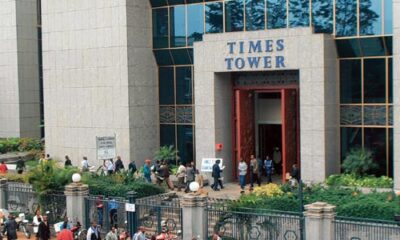
 News6 days ago
News6 days agoKRA Now Seeks To Know Source Of Income From Purchases
-
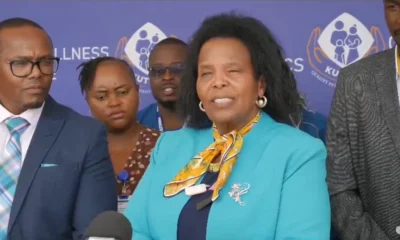
 News2 weeks ago
News2 weeks agoQuacks: Five Foreign Doctors Hired By Prof. Mugenda To Replace 100 Striking Doctors At KUTRRH Fail To Pass Licensing Tests
-
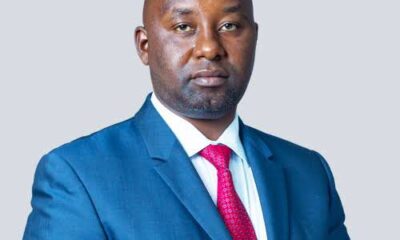
 News1 week ago
News1 week agoKenyan Executive Dragged In A Multibillion Bank Heist
-
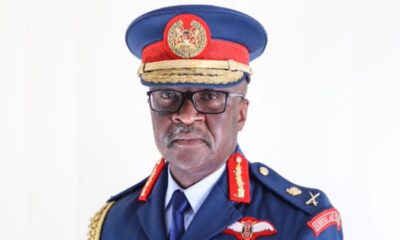
 News1 week ago
News1 week agoKDF CDF General Francis Ogolla Is Dead
-
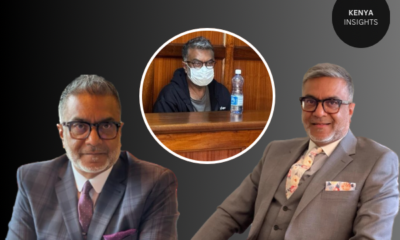
 Investigations2 weeks ago
Investigations2 weeks agoThe Unsettling Many Faces Of Controversial Nazir Jinnah
-
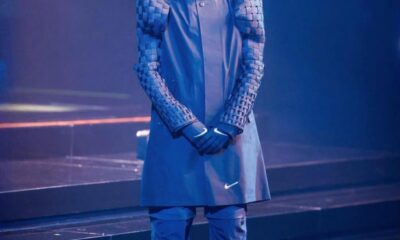
 News2 weeks ago
News2 weeks agoWhat Nike Has Done To Eliud Kipchoge Is A War Crime, His Lawyer Says
-
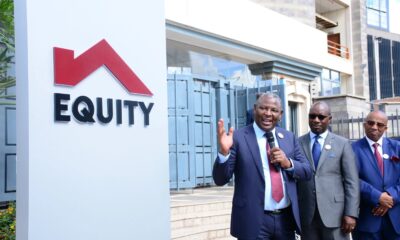
 Business1 day ago
Business1 day agoTroubled Equity Bank Fires Executives Amid Loan Fraud Scandal In Tanzania